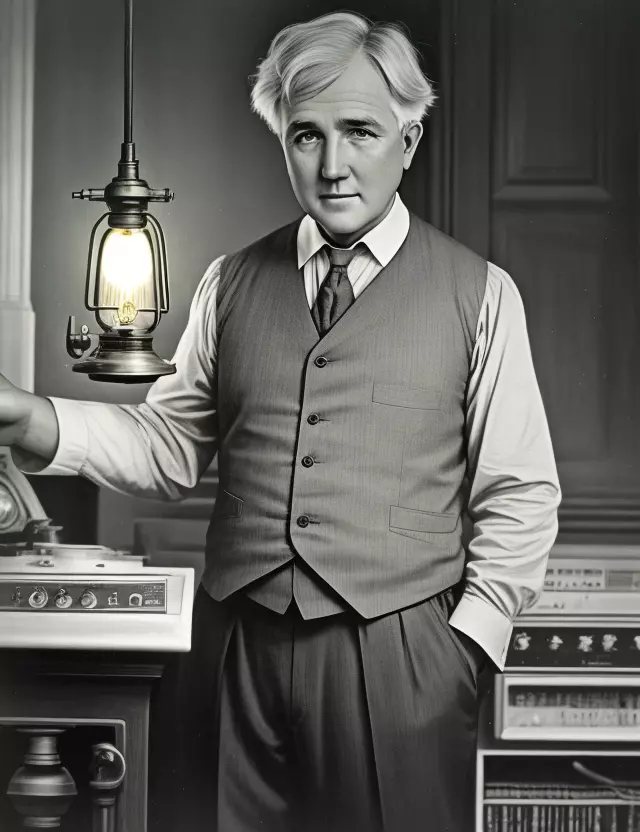Thomas Edison's First Successful Sound Recording: Reciting 'Mary Had a Little Lamb' (1877)
A Milestone in Sound Technology

Introduction
On November 29, 1877, Thomas Edison, the pioneering inventor, made history by achieving the first successful sound recording. This groundbreaking moment marked a milestone in the field of sound technology and laid the foundation for the future of audio innovation. Experience the historic demonstration as Edison recited the timeless nursery rhyme 'Mary Had a Little Lamb.'
The Invention of Sound Recording
Thomas Edison's work on sound recording was part of his broader efforts to capture and reproduce sound. The invention of the phonograph, unveiled during this period, represented a revolutionary breakthrough that would transform the way people experienced and interacted with audio.
The Demonstration
During the historic demonstration on November 29, 1877, Thomas Edison showcased the capabilities of his invention by reciting the nursery rhyme 'Mary Had a Little Lamb.' The momentous event marked the first time in history that sound had been successfully recorded and reproduced, opening up new possibilities for communication and entertainment.
Technological Innovation
Edison's sound recording technology was a marvel of its time, relying on a rotating cylinder covered with a soft material that could capture and reproduce sound waves. The demonstration of 'Mary Had a Little Lamb' exemplified the potential of this innovation to preserve and transmit spoken words and music.
Impact on Communication and Entertainment
The successful sound recording by Thomas Edison had a profound impact on the fields of communication and entertainment. It paved the way for the development of the music industry, radio, and other audio-based technologies, revolutionizing how people experienced and shared sound.
Legacy of Innovation
Thomas Edison's achievement in sound recording left a lasting legacy, shaping the trajectory of technological innovation in the decades to come. The phonograph became a cultural phenomenon, influencing the way people consumed and enjoyed music, speeches, and other audio content.
Continued Advancements
The demonstration of sound recording in 1877 marked the beginning of a journey of continued advancements in audio technology. From the early phonograph to the sophisticated recording devices of today, Edison's pioneering work laid the groundwork for an ever-evolving audio landscape.
As we reflect on the historic moment of November 29, 1877, we celebrate Thomas Edison's ingenuity and vision in achieving the first successful sound recording. The recitation of 'Mary Had a Little Lamb' echoed not only in the room that day but resonated through time, influencing the way we experience and appreciate sound in the modern world.



